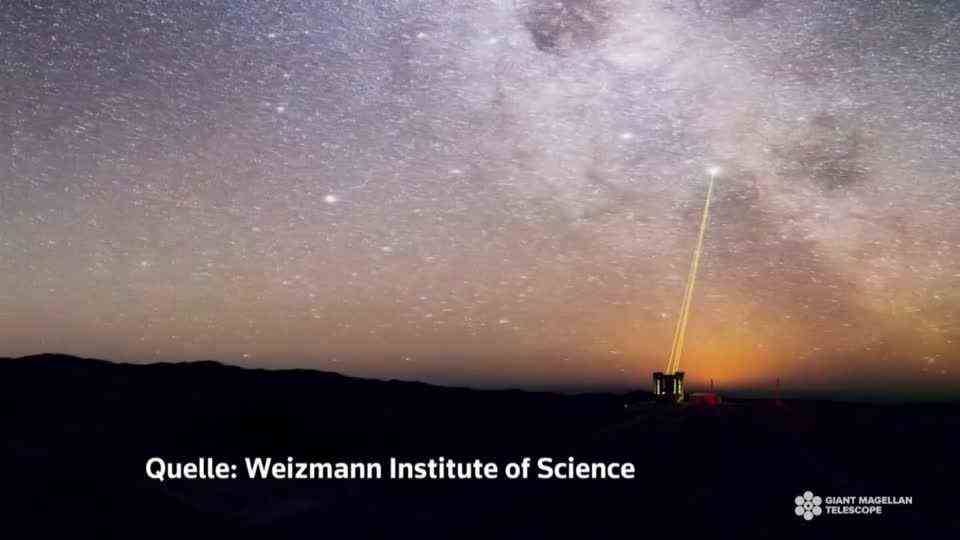Historic step
Chile is rewriting its constitution – and is the first country to declare war on the climate crisis
Researchers pose on an expedition on the Fouque Glacier in the southernmost tip of Chile
© Nicolas Garcia / AFP
The constitution is currently being rewritten in Chile. The fight against the climate crisis should play a central role. The country could thus become a model for international climate policy.
Increasing weather extremes, species extinction and water scarcity: This year has more than clearly shown how dramatic the effects of an ever-warming planet are. But the fight against the greatest threat to mankind – the climate crisis – has not yet been put into constitution in any country in the world. Chile now wants to change that. The country is currently going through one of the greatest political upheavals in its history.
After months of protests against the social and economic grievances in the country, a referendum paved the way for constitutional reform last year. The current social contract from 1980 goes back to the military dictatorship under General Augusto Pinochet and was a thorn in the side of many Chileans. For six months now, 155 women and men have been working on a new constitution for more equality and equal rights in society. In addition to the right to a pension, better access to education and health care as well as equal rights for women and indigenous peoples, the fight against the climate crisis is one of the central issues.
Chile: Constitution under the sign of the climate emergency
On December 19th there was another turning point. The Chileans elected Gabriel Boric, a 35-year-old former student activist, as president. He too wants to campaign for more environmental protection.
For the indigenous chairman of the constitutional convention, linguist Elisa Loncón from the Mapuche people, one thing is certain: In its work, the body must not turn its back on the earth, nature and the creatures that live in it, because they also exist in us It is crucial that we draft our constitutional proposal in harmony with Mother Earth “. In October the assembly therefore had 137 votes out of 155 an important statement adopted:
“The drafting of the new constitution is characterized by the climatic and ecological emergency; therefore, in all commissions and in all proposals it develops, it must keep in mind that the following must be guaranteed in order to cope with the climate and ecosystem crisis: environmental education, prevention and preparedness , securing the level of climate protection already achieved and the ecological transformation. “
Important topics: water rights and lithium production
Hardly any other topic polarizes as much as water, which in Chile is constitutionally defined as private property. But that could soon be over. The constituent assembly wants to have water codified in future as a public good that does not benefit industry first, but rather people.
Record fires, devastating floods, violent storms: these were the extreme weather conditions in 2021
28 images
In northern Chile in particular, water is a scarce commodity, also because numerous mining companies have private water rights. At the same time, there is a lack of access to clean drinking water in many poorer areas. During the protests of 2019, the demand for a right to water was therefore raised.
The constitutional body will also determine the future of a soft, shiny metal called lithium, which slumbers in the salt water beneath the vast Atacama Desert near the Andes. Lithium is an essential part of batteries – and a popular product these days. Since the global economy is increasingly relying on the expansion of renewable energies, the demand for lithium is increasing – which in turn drives up prices.
After Australia, Chile is the world’s largest producer of lithium. Many politicians and mining companies strive to increase production because they see mining as a crucial factor for national prosperity. But they are increasingly meeting with resistance. More and more Chileans are of the opinion that the country’s economic model, which is based on the extraction of natural resources, causes excessive environmental costs. You criticize the fact that the benefits do not benefit all citizens – least of all the indigenous people.
“How much damage are we going to do?”
It is now up to the Constitutional Convention to decide which path Chile will take in terms of climate protection in the future. Should water remain privately owned or become a public good? How can lithium production be regulated and what influence do local communities have? Should nature have rights of its own? And how can future generations be better protected?
The questions posed by the constitution of the assembly do not only concern Chile. Countries around the world face the same challenges in the fight against the climate crisis.
“We have to assume that human activities cause damage, so how much damage do we want to cause?”, Cristina Dorador Ortiz, microbiologist and member of the constitutional assembly, sums up the dilemma. “What’s enough harm to live well?”
Sources: “NY Times“,”German wave“,”arte“,”daily News“


